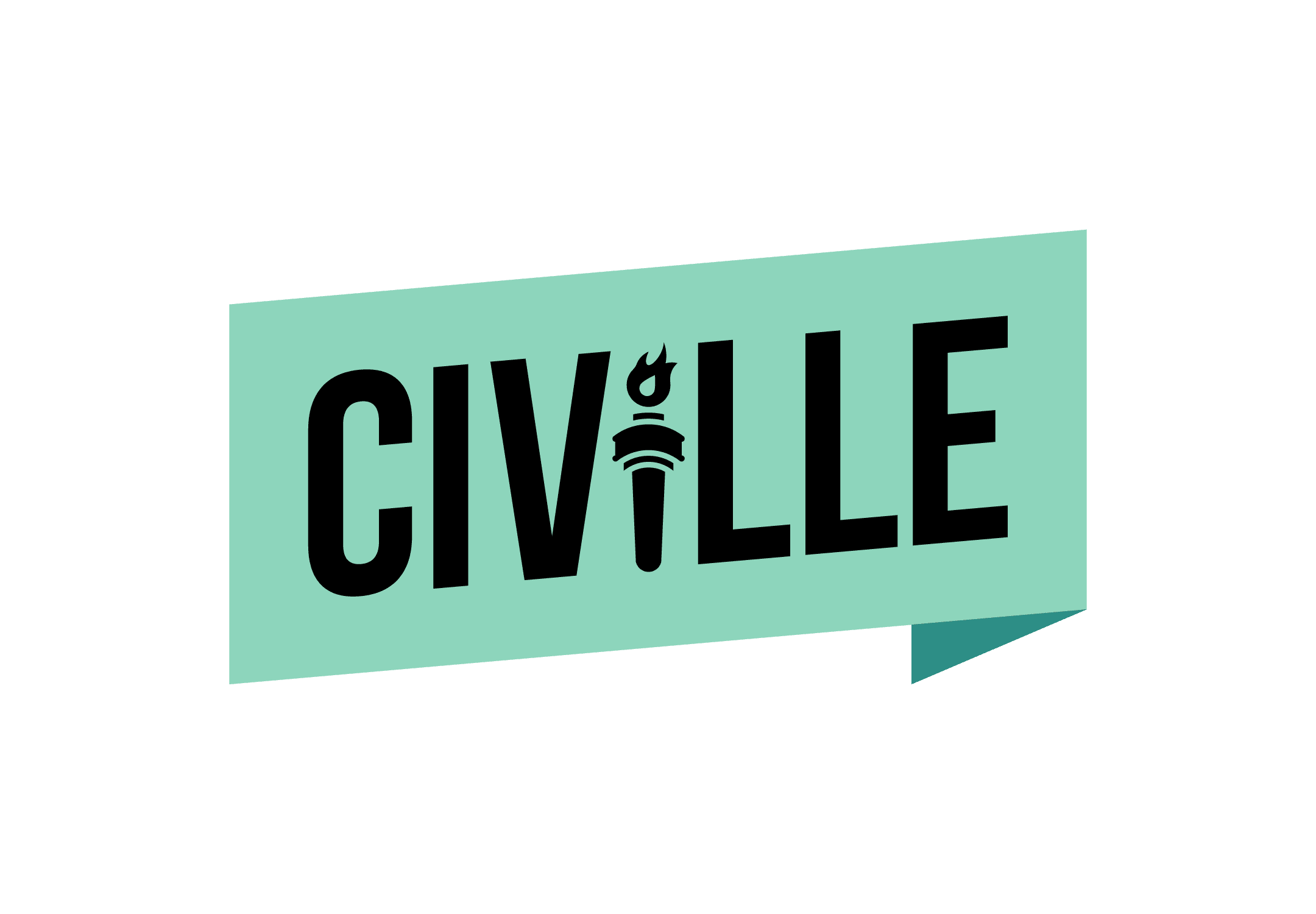Using AI for SEO and Content Creation: What Law Firms Should Know Right Now

In the rapidly evolving world of AI, SEO (search engine optimization), and content creation, what we know right now may be different next month, or even next week. As search engines continue to prioritize high-quality content for better user experience, law firms and lawyers must adapt their digital marketing strategies accordingly. This article looks at the latest developments in AI-generated content and their implications for SEO, fully knowing that it may be outdated within just a few weeks.
From striking a balance between efficiency and quality to addressing plagiarism concerns with cryptographic watermarking techniques, this article will cover both the pros and cons of using AI for SEO purposes. Furthermore, we explore Google's guidelines for AI-generated content while emphasizing the responsible use of cutting-edge tools, like ChatGPT.
Lastly, it is important to learn how to appropriately leverage these advanced technologies in your law firm's digital marketing strategy by tailoring topics specifically for target audiences and considering employing skilled writers who can work alongside AI-generated content.
AI and Content Creation in SEO
Artificial intelligence (AI) tools like ChatGPT have revolutionized content creation, enabling the generation of high-quality written material at scale. Striking a balance between efficacy and excellence is essential for the successful incorporation of AI tools into SEO plans. Google emphasizes that valuable and helpful content should be prioritized regardless of whether it was created by humans or machines.
The Impact of AI-generated Content on SEO
In recent years, AI technology has made significant strides in natural language processing and deep learning capabilities. This progress allows businesses to create content more efficiently than ever before, leading to increased productivity levels in various industries including law firms and lawyers. With advanced algorithms capable of understanding user behavior better than human effort alone, these tools can help optimize web pages for higher rankings on search engines such as Google.
However, relying solely on AI-generated content could potentially harm your website's search engine rankings if not used responsibly. It is essential to keep an emphasis on developing useful, quality material that provides value for users and abides by industry standards such as Google Webmaster Guidelines. Google continues to change its position on AI content, so stay tuned for continuing updates.
Striking a Balance Between Efficiency and Quality
- Create comprehensive briefs: To ensure that the AI writing tool generates relevant and informative output tailored specifically towards your audience's needs, it is critical to always provide detailed instructions outlining desired topics along with appropriate keyword research data. AI cannot create content and think for itself (yet), and it needs specific prompts to provide the best results. Better input will result in better output from AI content platforms. - Edit generated text: While AI-created materials may save time producing content, it is crucial to review and edit the output for accuracy, readability, and tone. This ensures that your content remains engaging, accurate, and ethically compliant while maintaining a high level of quality. - Combine human creativity with AI: Use AI-generated content as a starting point or supplement to traditional writing methods rather than relying on it entirely. By incorporating human effort into the creation process, you can strike an optimal balance between efficiency gains offered by these cutting-edge tools and the unique insights provided through personal experience within your industry niche.
Incorporating AI technology into your SEO strategies requires careful consideration of both its potential benefits and drawbacks. By striking a balance between efficiency gains offered by advanced language models like ChatGPT, Content At Scale, and other AI content tools, and maintaining focus on creating valuable, helpful materials tailored specifically towards law firms' target audiences, lawyers can harness this powerful tool effectively without compromising their website's search engine rankings in today's competitive digital landscape.
Plagiarism Concerns with AI-generated Content
As the use of advanced language models like ChatGPT and Content At Scale become more widespread, concerns about plagiarism have grown in tandem. These powerful AI tools can generate content that closely resembles human writing, making it difficult to distinguish between original and copied material. To address this issue, researchers are developing innovative methods for detecting computer-created writing.
Cryptographic Watermarking Techniques for Detecting Computer-Created Writing
Cryptographic watermarking techniques are emerging as a promising solution to identify AI-generated content. By embedding hidden markers within the text, these watermarks allow experts to trace the origin of a piece of writing and determine whether it was produced by an artificial intelligence system or not. This approach helps ensure that plagiarized work is detected swiftly and effectively while preserving the integrity of original content.
Ensuring Originality in an Age of Advanced Language Models
In today's competitive landscape where originality holds paramount importance, law firms must take proactive measures to maintain high standards for their digital marketing materials. Here are some best practices to follow:
- Conduct thorough research: Before creating any content using AI tools like ChatGPT, perform comprehensive keyword research and gather relevant information from reputable sources. At the end of the day, your AI-generated content will only be as good as the prompts you provide. - Leverage plagiarism detection software: Utilize reliable plagiarism detection tools such as Copyscape, which can help identify instances of copied content and ensure that your materials remain unique. - Collaborate with human writers: AI-generated content should be treated as a starting point rather than the final product. Work closely with skilled writers and editors to refine, optimize, and tailor the material for your target audience.
By adopting these strategies, law firms can effectively navigate the challenges posed by AI-generated content while harnessing its potential benefits for their SEO efforts.
Pros and Cons of Using AI for SEO Purposes
Despite the potential advantages, there are also drawbacks to incorporating AI into SEO strategies that law firms should take into account. The potential upsides and drawbacks of using AI-based technologies in SEO initiatives are worth examining.
Benefits Offered by Responsible Use of Cutting-Edge Tools Such as ChatGPT
Of course, there are many benefits to utilizing cutting-edge tools such as ChatGPT, including the following:
- Faster content production: AI writing tools can significantly speed the process of creating blog posts, social media updates, and other written content. This allows businesses to maintain a consistent online presence without overburdening their staff or outsourcing work to external writers. - Easier keyword research: Some AI-powered platforms offer integrated keyword research features that help identify high-traffic terms relevant to your industry. By incorporating these keywords into your content strategy, you increase the likelihood that potential clients will find your website through organic search results. - Better user experience: Advanced natural language processing algorithms enable AI-generated content to be more engaging and informative than ever before. When used responsibly alongside human creativity, these tools can improve user behavior metrics like time on site or bounce rate - factors that positively influence search engine rankings.
Challenges Associated with Incorporating AI-generated Material into Digital Marketing Strategies
There are, of course, drawbacks to incorporating AI-generated content into a digital marketing strategy. Some of these challenges could include the following:
- Potential for low-quality output: While some advanced language models produce impressive results, there is still a risk of generating content that falls short in terms of readability, relevance, or accuracy. To mitigate this issue, it's essential to review and edit AI-generated material before publishing. - Dependence on human input: Despite the efficiency gains offered by AI tools like ChatGPT, they are not yet capable of replacing human effort entirely. Skilled writers and editors remain crucial for ensuring that your law firm's content meets high standards of quality and adheres to ethical guidelines. - Limited creativity: While AI-generated content can be engaging and informative, it may lack the unique insights or perspectives provided by human authors. As such, relying solely on artificial intelligence for your digital marketing strategy could result in a loss of differentiation from competitors who invest more heavily in original thought leadership pieces.
Incorporating AI technology into your law firm's SEO efforts can yield significant benefits when used responsibly alongside skilled professionals. By understanding both the advantages and challenges associated with these cutting-edge tools - as well as Google's guidelines for their use - you can make informed decisions about how best to leverage them within your overall digital marketing strategy.
Google's Guidelines for AI-generated Content
In response to growing concerns surrounding artificially generated text from OpenAI products like ChatGPT, Google has published guidelines emphasizing that valuable and helpful content should be prioritized regardless of whether it was created by humans or machines. These guidelines also acknowledge the potential risks posed when AI-generated content is used irresponsibly, leading to spammy low-quality materials proliferating across web platforms. Be forewarned: the content that follows could change at any time, and it is important to do your own research before you utilize AI tools to create your online content.
Prioritizing Valuable and Helpful Content in SEO Strategies
To ensure compliance with Google's recommendations, law firms and lawyers must focus on creating high-quality content that provides value to their audience. AI content tools can quickly generate comprehensive briefs, outlines, and visual assets tailored specifically toward individual marketing campaigns. However, it is essential to maintain a balance between efficiency gains offered by these cutting-edge tools while ensuring human effort is not entirely replaced.
- Natural language processing (NLP): By leveraging the NLP capabilities of advanced AI writing tools like ChatGPT and Content At Scale, you can create well-structured sentences that are easy for search engines to understand. - User behavior analysis: Analyzing user behavior data helps identify patterns in how users interact with your website pages or social media posts. This information will enable you to optimize content accordingly. - Keyword research: Conducting thorough keyword research ensures your content remains relevant within search results while adhering to closely aligned industry-specific terms that most likely resonate among targeted audiences seeking legal advice online today.
Mitigating Risks Associated with Irresponsible Use of AI-generated Material
While using AI tools for content creation can be beneficial, it is crucial to avoid the pitfalls associated with irresponsible use. Here are some tips to ensure your law firm's digital marketing strategy remains compliant with Google's guidelines:
- Avoid duplicate content: Ensure that each piece of content created by an AI tool is unique and not a rehash of existing materials on the web. - Edit and review: Always have human editors review and refine any AI-generated content before publishing, ensuring its accuracy, relevance, and quality. Make sure to use tools such as Copyscape and Copyleaks to determine if AI-generated content is plagiarized or identified as non-human content. - Maintain authorship integrity: Properly attribute all authors involved in creating the content, as this demonstrates transparency while maintaining credibility among readership groups alike.
By utilizing AI-generated content responsibly, you can leverage its potential to gain a competitive edge in today's legal landscape. By prioritizing valuable and helpful content while mitigating risks associated with the irresponsible use of AI-generated material, you'll stay ahead in today's competitive legal landscape.
Leveraging AI Tools for Law Firm Digital Marketing Strategies
Attorneys can utilize advanced language models like ChatGPT to create tailored, high-quality content as part of their digital marketing strategy. By employing skilled writers and editors trained in working with AI-generated content, law firms can ensure that their materials remain informative while benefiting from the efficiency gains offered by these cutting-edge tools.
Tailoring Topics Specifically for Target Audiences (Lawyers and Law Firms)
- Keyword research: Use AI-powered keyword research tools such as Ahrefs Keywords Explorer or Moz Keyword Explorer to identify relevant search terms your potential clients are using. This will help you craft targeted content that addresses the specific needs and concerns of your audience. - Social media posts: Leverage AI writing tools like ChatGPT to generate engaging social media captions, headlines, and summaries that drive traffic back to your website or blog articles. - Email campaigns: Utilize natural language processing algorithms found in email marketing platforms such as Mailchimp's Smart Subject Line Suggestions feature to optimize open rates on newsletters sent out by attorneys seeking new clientele opportunities within their respective fields of expertise.
Employing Skilled Writers and Editors to Work Alongside AI-generated Content
To maintain an equilibrium between human imagination and AI effectiveness, having a squad of experienced authors and editors who can cooperate with AI-generated material is indispensable. Here are some tips for ensuring your law firm's digital marketing strategy remains effective:
- Train your content creators on how to use AI writing tools effectively, allowing them to focus more on strategic thinking and less on repetitive tasks.
- Establish an editorial process that involves a human review of all AI-generated material before publication. This ensures the content aligns with your brand voice, maintains legal accuracy, and meets ethical standards.
- Incorporate user behavior data from analytics platforms like Google Analytics into your content optimization efforts. By understanding what resonates best with users visiting web pages authored by attorneys or other professionals within their respective industries, you'll be better equipped at creating engaging materials aimed specifically toward those individuals seeking out services provided by firms such as yours.
By leveraging advanced language models like ChatGPT in conjunction with human effort, law firms can create high-quality digital marketing materials tailored specifically for their target audience while optimizing search engine rankings. With careful planning and execution, these cutting-edge tools offer immense potential benefits without sacrificing quality or originality in the ever-evolving world of SEO.
FAQ - AI, SEO, and Content Creation
The following are some frequently asked questions regarding AI, SEO and content creation.
How can AI help with content creation? AI assists in content creation by generating ideas, drafting outlines, and (in some cases) producing high-quality text. It accelerates the process while maintaining consistency and coherence. Advanced language models like ChatGPT enable the efficient generation of relevant and engaging content.
What are the benefits of using SEO for content creation? SEO enhances online visibility, drives organic traffic to websites, increases brand credibility, and improves user experience. By optimizing content with targeted keywords, meta tags, headings structure, internal linking strategies, and more - businesses can achieve higher search engine rankings leading to increased conversions.
How can AI be used to optimize content for search engines? AI-powered tools analyze data patterns to identify optimal keywords or phrases that improve search engine ranking. They also provide suggestions on meta tags optimization, URL structure improvement, or even recommend LSI (Latent Semantic Indexing) terms that contribute towards better overall SEO performance.
What impact does AI have on SEO and content creation? AI streamlines the process of creating optimized web content by automating repetitive tasks such as keyword research or topic ideation. This allows creators to focus on crafting compelling narratives without sacrificing quality or relevance while adhering to best practices for improved SERP (search engine results page) positions.
What strategies should be employed when creating content with both SEO and AI in mind?
- Create a balance between human writers & AI tools.
- Leverage AI for idea generation.
- Create outlines produced by AI systems.
- Use AI applications for graphic creation.
- Create and develop keyword strategies with AI tools.
By allowing law firms to create content that is optimized for search engines and user behavior, AI technology is revolutionizing content marketing and SEO strategies. While AI-generated content is not a replacement for human creativity, it is a valuable tool for content production and optimization. With natural language processing and deep learning, AI writing tools are becoming more sophisticated, allowing lawyers to create good content that resonates with their audience and achieves higher rankings in search results.
Conclusion
In conclusion, AI is transforming the way we approach content creation and SEO. While there are risks associated with plagiarism and quality control, leveraging intelligent systems can lead to more efficient processes and targeted strategies. It's important to strike a balance between automation efficiency and human touch, combining skilled writers with innovative language models like ChatGPT.
As legal professionals navigate this evolving landscape, lawyers can harness these advanced SEO tools powered by artificial intelligence to help craft targeted keyword strategies, help write informative and authoritative content, and generate visual content.
Featured photo by Mohamed Nohassi on Unsplash.




